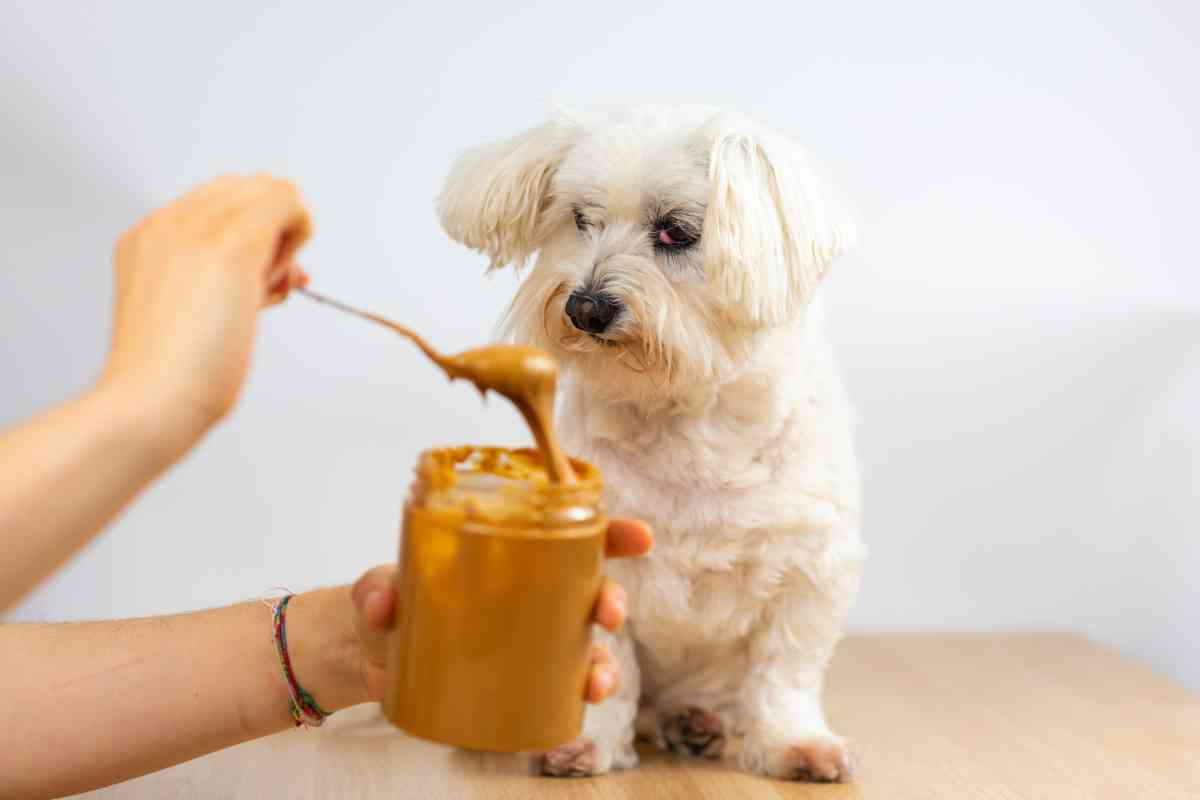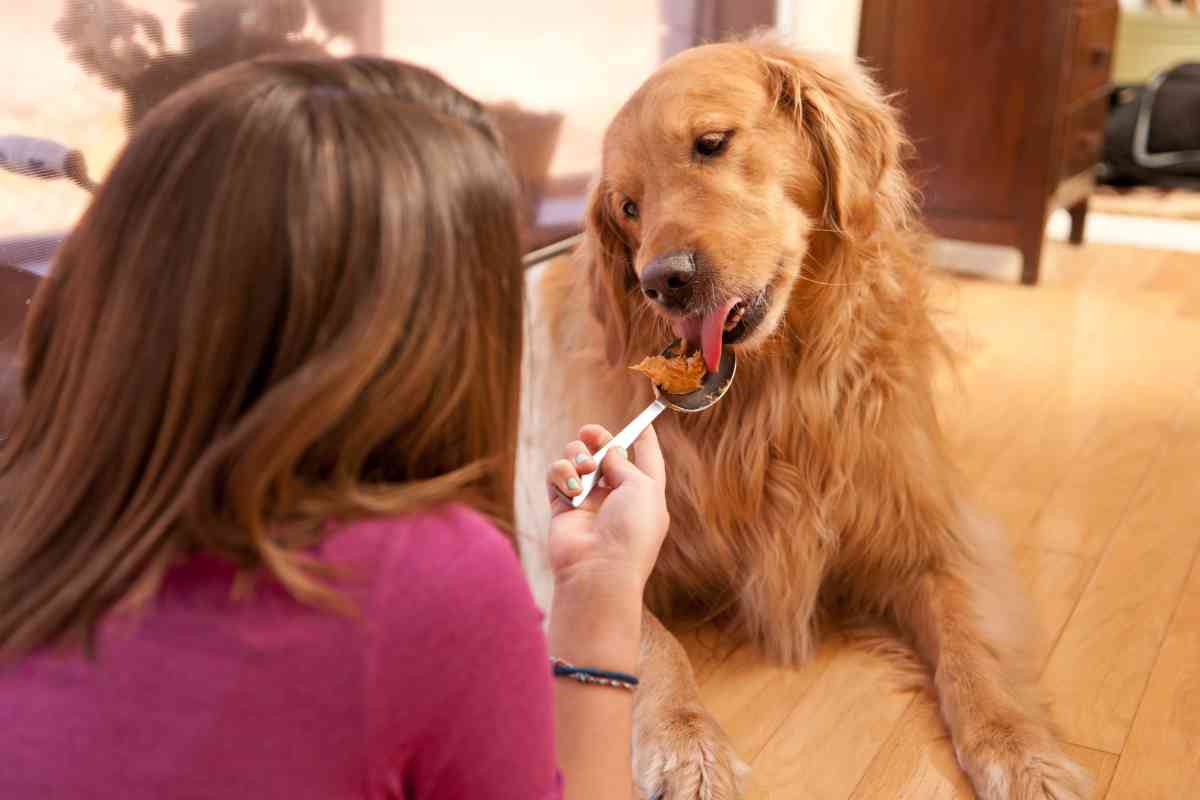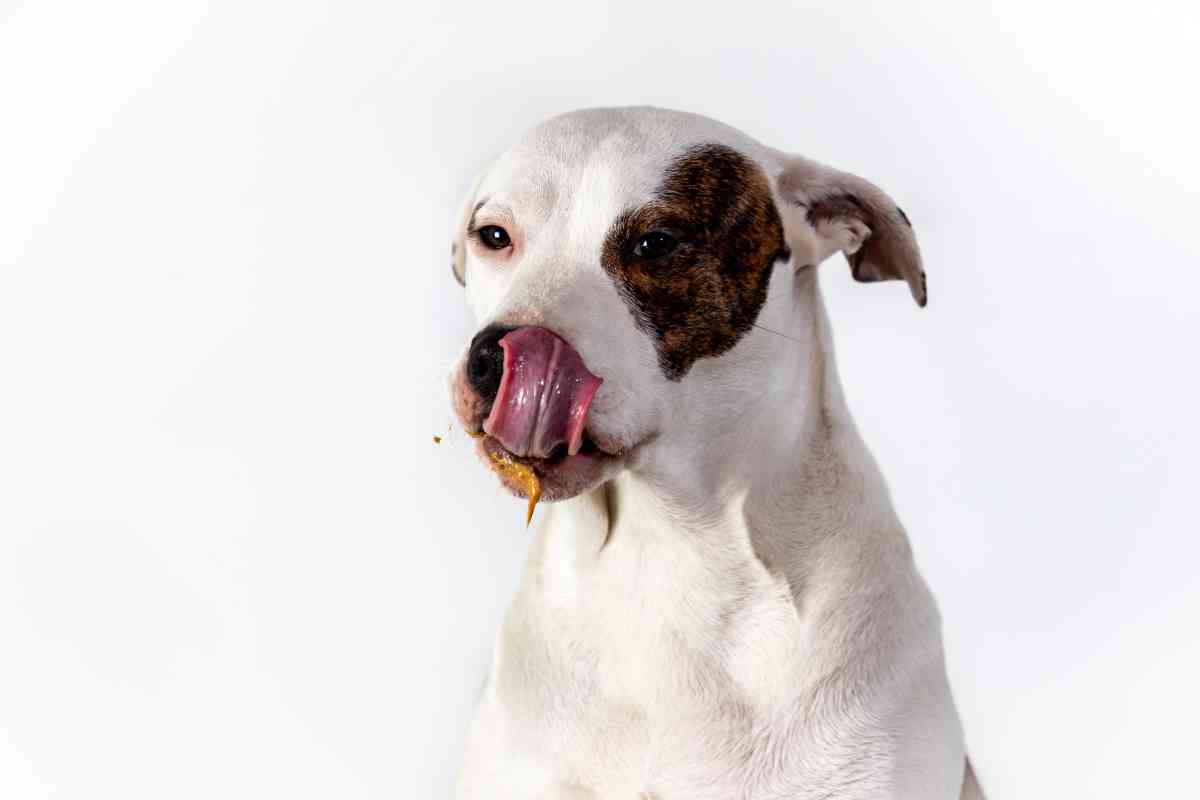Can Puppies Eat Almond Butter? 4 Major Risks Explained
To humans, almond butter is a healthy product and helps in the prevention of various medical conditions. Can puppies eat almond butter?

Can Puppies Eat Almond Butter?
Yes, puppies can consume almond butter, but they should consume it sparingly. Almond butter is safe for consumption by puppies and is rich in minerals and vitamins. However, do not frequently feed your puppies with almond butter, because this can lead to health problems.
Many people appreciate the consumption of almonds, and in particular, almond butter. Almonds are a healthy, fulfilling, and delicious treat for human consumers.
As a matter of fact, medics and other health experts have recommended the use of almonds.
One of the greatest health benefits that come with the consumption of almond butter is the management of the level of cholesterol and ensuring that the heart remains healthy and fit to execute its core mandate.
Interestingly, some puppies also seem to enjoy almond butter as much as their owners. However, with so many types of nuts on the market, it can be difficult to determine whether almond butter is safe to share with your puppy.
Remember, you need to keep the health and safety of your puppy as a priority in order to give it a happy and fulfilling life.
In this article, you will learn everything you need to know about giving almond butter to puppies.

Is Almond Butter Safe for Your Puppy?
Well, the answer to this is yes, but with restrictions. Almond butter is typically safe for pets, and this includes puppies.
Unlike other nuts that contain toxic chemicals to dogs, like macadamia, walnut, and pistachios, almond nuts do not contain toxic chemicals that can harm your puppy. Butter made from almonds is also easy to digest for most puppies.
Almond butter is packed with essential minerals and vitamins that can promote the health of your puppy.
It has vitamin B3 that will give your puppy a shiny and healthy coat and healthy eyes. Almonds can also promote the functioning of your puppy’s immune system thanks to its Vitamin E content.
This vitamin is also helpful for fighting free radicals from the cells. In addition, almonds have magnesium, phosphorus, and calcium that helps with strong and healthy joints and bones.
That being said, there is still a need to take caution when feeding almond butter to your pet. The fact that your puppy enjoys eating it should not be reason enough for you to give it in excessive amounts.
Regularly feeding your puppy almond butter can lead to intestinal distress because they may experience difficulty digesting it. Besides an upset stomach, too much almond butter can cause gas and make your puppy lose its appetite.
Risks Associated with Giving Puppies Almond Butter
Giving large amounts of almond butter to puppies can cause serious health issues. Here are some risks that come with it.

Upset Stomach
If your puppy eats large portions of almond butter, they are likely to experience an upset stomach.
This is especially true if they can’t digest the butter. In addition, some puppies may experience vomiting and diarrhea as a side effect of eating too much almond butter.
When this happens, ensure that you give your puppy plenty of water and a bland diet. This should help your dog’s upset stomach to find relief within 24 to 48 hours.
Liver Damage
Several almond butter brands contain an artificial sweetener known as xylitol.
Often indicated as birch sugar, this sweetener can be dangerous for puppies even when consumed in low amounts. Sweetened almond butter can cause low blood sugar, liver damage, and sometimes death.
Therefore, it helps to check the label for this ingredient in your almond butter and other low-sugar and low-calorie products before giving it to your furry friend.
Pancreatitis
While your puppy may enjoy almond butter, it helps to remember that it has a high-fat content.
Therefore, indulging too much in it can put your puppy at risk of developing pancreatitis. This is a result of inflammation in the pancreas.
Generally, a high-fat diet is not a healthy diet to consume, whether to human beings or animals. It could lead to devastating health consequences.
Weight Gain
Because of the fat content in almond butter, there is a high likelihood that your puppy will gain weight if they indulge it too much.
What’s more, sweetened almond butter is high in calories, and this could have the same effect.
How Often Should Puppies Eat Almond Butter

Because of its high-fat content, almond butter should be given to puppies occasionally and in very small amounts.
A good rule of thumb is that the smaller the dog, the lower the amount of almond butter given. Also, the amount of almond butter ideal for your puppy will depend on its diet and health history.
Therefore, before you share your almond butter with your puppy, consult your vet to know how much is too much. Your vet may also be in the best position to recommend the best almond butter brand for your pup.
There are several ways that you can allow your puppy to enjoy a treat of almond butter in small portion sizes.
For instance, you can add butter to their chew toy or their favorite bully stick. Still, you can allow your puppy to lick a bit of the butter off a spoon.
Key Takeaways
- Almond butter is naturally safe and not toxic for puppies.
- When taken in excess, almond butter can expose puppies to health issues like pancreatitis because of its high-fat content.
- Almond butter should be given to puppies as a treat occasionally and in small portion sizes.
- Products with sweeteners like xylitol can lead to liver damage, hypoglycemia, and in some cases death.
- If your puppy is allergic, contact your vet right away. This is also true if the symptoms of eating almond butter worsen.